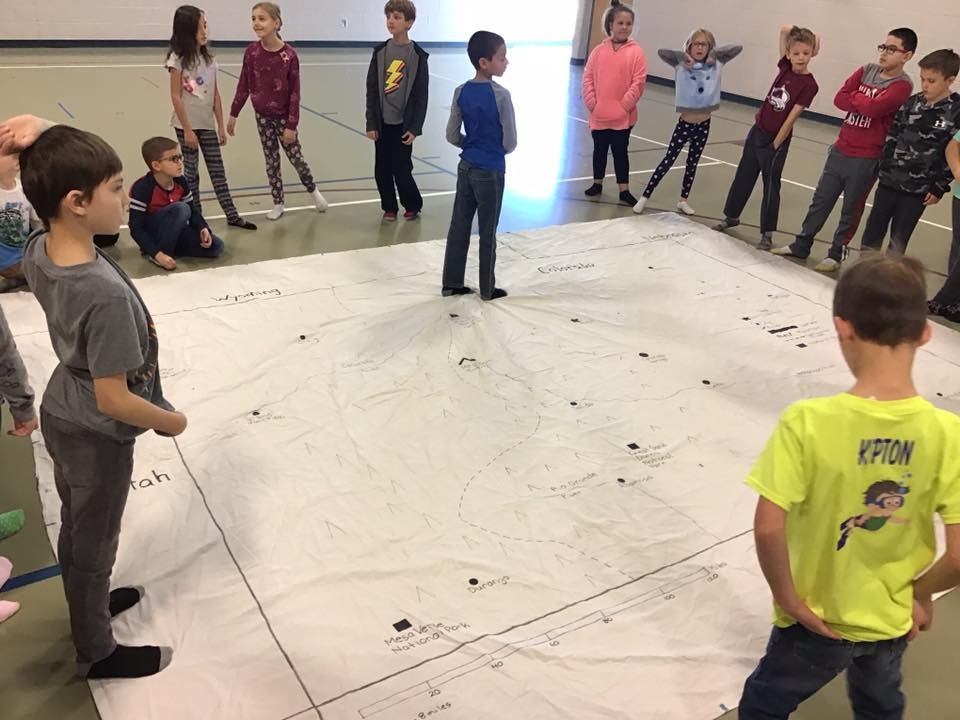Our Philosophy
At Antelope Trails, we encourage a lifelong love of learning. We aim to get to know each and every one of our students as a whole child. From their passions and interests, to their family and life beyond school, we understand that each child has needs and strengths to support and foster. Primary students experience across subject levels lessons through inquiry based learning with STEAM.
Third grade students have frequent opportunities to work with others. Engaging in collaborative learning allows students the opportunity to practice their social and self-management skills - areas we know to be vitally important to student success. These experiences also allow students to learn from others. Third graders also hone their research skills through engaging projects, such as their living history museum and Genius Hour projects. Through IB practice, students are encouraged to be caring, inquirers, and principled.
The Antelope Trails community holds many events throughout the year. We welcome volunteers and value family participation. We are excited to partner alongside you and your family to make your child's elementary experience the best it can be.
Third Grade Daily Schedule
Soft Start/Morning Work
WIN Time (What I Need in Reading)
Reading
Writing
Lunch
Recess
Science/Social Studies
Specials (Music, Art, P.E., or Spanish)
Math
Recess
Read Aloud
Pack Up/Dismissal
Curriculum
IB Units of Inquiry
How we express ourselves
Central Idea: Humans share their interests and solve problems in a variety of ways.
Genius Hour, Research
Where we are in time and place
Central Idea: Locations and discoveries affect decisions.
Map Skills
How we organize ourselves
Central Idea: Humans are impacted by cause and effect relationships.
Local government and weather
Mayor visits third graders
Local meteorologist Matt Mesiter visits
Who We Are
Central Idea: Human beliefs and values are influenced by the past.
Colorado Springs history
Field trip to The Pioneers Museum
Sharing the Planet
Central Idea: People have responsibilities.
Goods, services, economics
Junior Achievement
How the World Works
Life is impacted by laws and variables.
Life cycles
In class, live butterfly, ladybug and praying mantis life cycles
Math
We utilize the Reveal Math curriculum to instruct math. By encouraging curiosity, exploration, and a growth mindset, Reveal Math allows students to see math as a dynamic set of problem-solving strategies instead of the application of memorized algorithmic or computational procedures. At each grade level, math instruction is taught with the approach of both whole group and small group instruction. Math practice is supplemented with the online component of Redbird and fact fluency practice using Rocket Math.
Science Units
Life Cycles
Weather Patterns
Forces and Motion
Reading
Using Open Court, we have a complete curriculum that ties together vocabulary, grammar, spelling, and reading. We focus on reading comprehension, accuracy, fluency in both fiction and non-fiction texts. In addition to Open Court, we use Orton-Gillingham, SIPPS Challenge and Ready during our small group reading instruction time.
Writing
We do Zaner Bloser cursive handwriting instruction.
Write From the Beginning
Setting the Stage
The foundational manual for all genres of writing. Teachers learn how to apply Thinking Maps for writing, the elements of effective writing, and grade level characteristics and expectations.
Narrative
Strategies for narrative writing, including personal thematic, personal chronological, autobiographical incident, imaginative, and fictional writing.
Response to Text
Covers reading comprehension for both literary and informational text and strategies for responding to text in writing, including open-ended response and formal response.
Expository/Informative
Covers a broad range of expository structures, including point of view, reporting information, describing, defining, comparing/contrasting, whole-to-part, cause/effect, explaining why/opinion, and explaining how.
Argumentative
Includes persuasive writing, problem/solution, evaluative argument, and formal/logical argument.
Websites and apps we use regularly:
Lexia
Zearn
Prodigy Math
Prodigy English
Epic
Typing Pal
